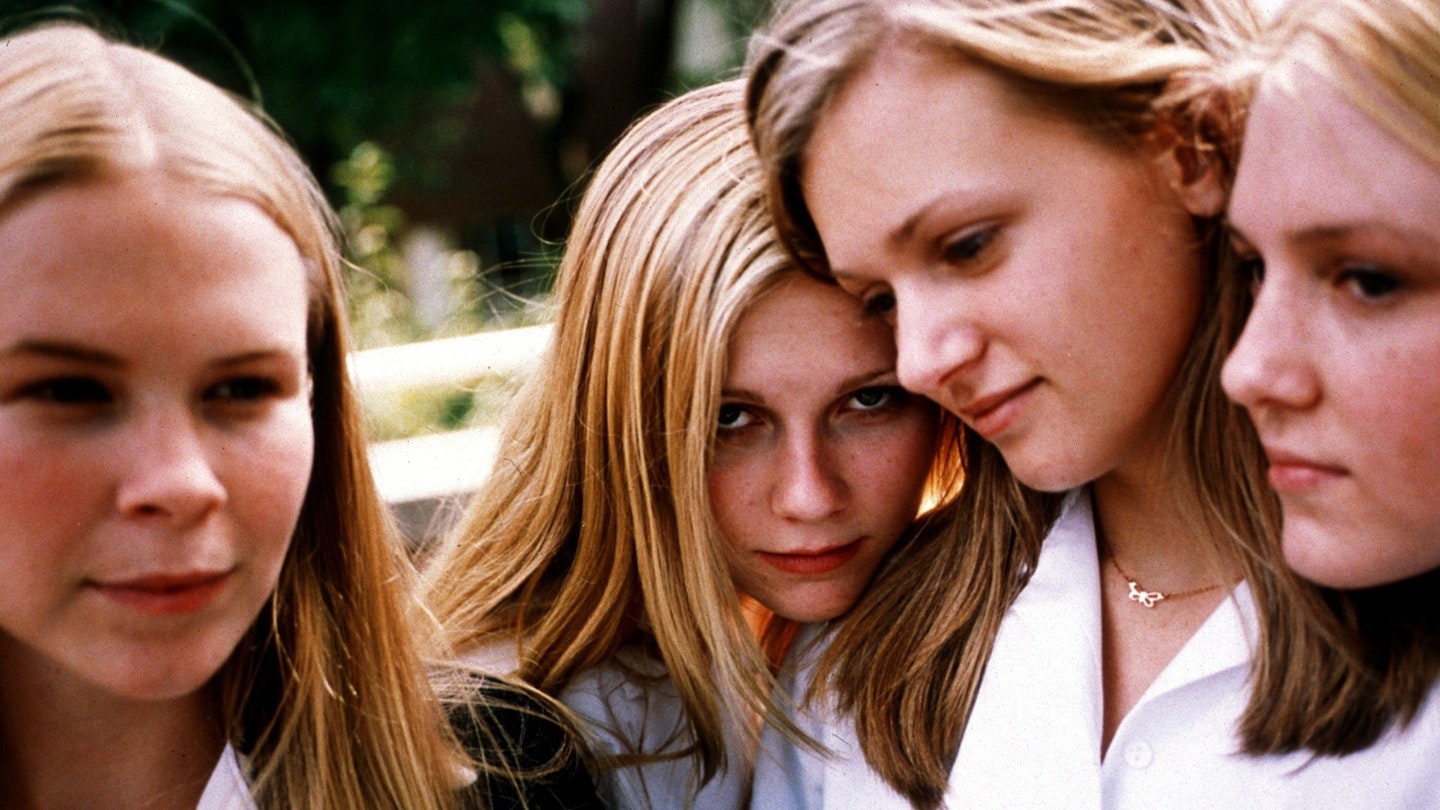Adapted from Jeffrey Eugenides' critically admired 1993 novel by Francis Coppola's daughter Sofia, this sultry tale of the five Lisbon sisters drowning in the sea of emotions that is adolescence, and the local boys they captivate, is a sultry, heady treat that, if not quite capturing the book's erotic intensity, certainly comes close.
Plotwise, The Virgin Suicides is very slight: born into a repressive, religious household, a brood of gorgeous, mysterious girls, banned from dating, parties and movies, have gone a bit bonkers - from permanently wearing a wedding dress to frenziedly flirting with anything in trousers. But these are no ordinary teen whims, as we see when, early on, the youngest sister, Cecilia, unsuccessfully slits her wrists in the bath, so setting in motion the tragic, inexorable breakdown of the family.
Yet, rather than spin a yarn, Coppola has created a film more about mood than substance, evoking the girls' sexual awakening with rich hues of yellow, gold and red and stunning visuals - especially a gorgeous dream-like sequence where the sisters frolic in a sun-kissed field of corn - complemented perfectly by a dreamily ethereal score by the French band Air.
However, it's not all arty froth. A dry sense of humour runs through the film throwing into relief the build-up of muted hysteria that culminates in a genuinely shocking denouement. Playing superbly against type, Turner and Woods are a revelation as the girls' parents, and a smouldering Kirsten Dunst perfectly captures Lux Lisbon's seductive sexiness, while Hartnett manfully triumphs over a frighteningly silly haircut to convince as the rehab-bound school heartthrob who breaks Lux's heart.
Occasionally the thin plotting makes the lack of any discernible point more manifest. But whether The Virgin Suicides is a parable about what happens when you try to police sexuality, or a tribute to the memory of adolescence, or something else entirely, this remains a seductive tale that lingers long in the memory.


